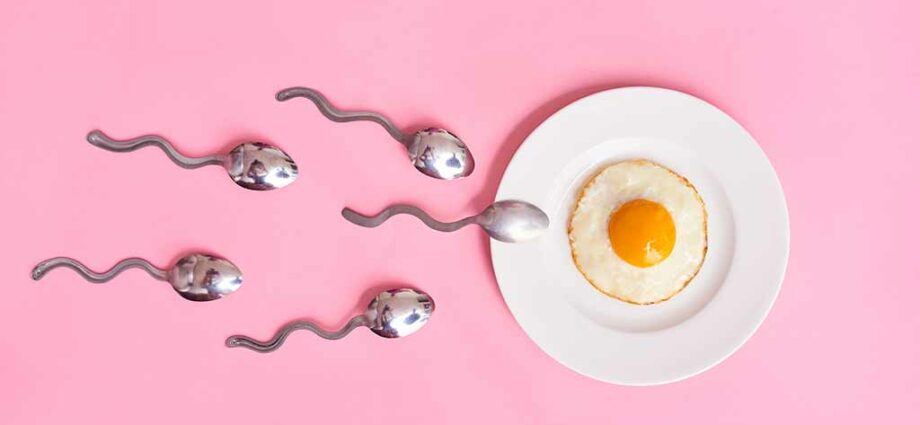Contents
Late ovulation: harder to get pregnant?
The length of the ovarian cycle varies greatly from one woman to another, and even from one cycle to another. In the event of a long menstrual cycle, ovulation logically takes place later, without affecting fertility.
When do we speak of late ovulation?
As a reminder, the ovulatory cycle is made up of 3 distinct phases:
- the follicular phase begins on the first day of menstruation. It is marked by the maturation of several ovarian follicles under the effect of follicle-stimulating hormone (FSH);
- ovulation corresponds to the expulsion of an oocyte by the dominant ovarian follicle which has reached maturity, under the effect of the luteinizing hormone (LH) surge;
- during the luteal or post-ovulatory phase, the “empty shell” of the follicle turns into the corpus luteum, which begins to produce progesterone, the role of which is to prepare the uterus for the possible implantation of a fertilized egg. If there has been no fertilization, this production stops and the endometrium is detached from the uterine wall: these are the rules.
An ovarian cycle lasts an average of 28 days, with ovulation on the 14th day. However, the length of the cycle varies among women, and even among cycles in some women. The luteal phase having a relatively constant duration of 14 days, in the event of long cycles (more than 30 days), the follicular phase is longer. Ovulation therefore occurs later in the cycle. For example, for a 32-day cycle, ovulation will theoretically happen on the 18th day of the cycle (32-14 = 18).
However, this is only a theoretical calculation. In the event of long cycles and / or irregular cycles, to optimize the chances of pregnancy, it is advisable on the one hand to confirm that there is ovulation, on the other hand to determine its date more reliably. There are different methods for this that the woman can do alone, at home: the temperature curve, observation of cervical mucus, the combined method (temperature curve and observation of cervical mucus or also the opening of the cervix ) or ovulation tests. The latter, based on the detection in the urine of the LH surge, being the most reliable for dating ovulation.
Causes of late ovulation
We do not know the causes of late ovulation. We sometimes talk about “lazy” ovaries without this being pathological. We also know that various factors can have an impact on the duration of cycles by influencing the hypothalamic-pituitary axis at the origin of the hormonal secretions of FS and LH: food deficiencies, emotional shock, intense stress, sudden weight loss, anorexia, intense physical training.
After stopping the contraceptive pill, it is also common for the cycles to be long and / or irregular. Put at rest for the duration of contraception, the ovaries may in fact take a little time to regain normal activity.
Long cycle, so less chance of having a child?
Late ovulation does not have to be poor ovulation. A Spanish study published in 2014 in European journal of obstetrics & gynecology, even suggests the opposite (1). The researchers also analyzed the ovarian cycles of nearly 2000 women who donated oocytes, and the pregnancy rate in the recipients. Result: egg donation from women with long cycles was associated with a higher percentage of pregnancy in recipients, suggesting better quality oocytes.
On the other hand, the longer the cycles, the fewer they will be during the year. Knowing that the window of fertility lasts only 4 to 5 days per cycle and that the chances of pregnancy are on average 15 to 20% per each cycle for a fertile couple having sex at the best time of the cycle (2), in In the event of long cycles, the chances of pregnancy will therefore be significantly reduced.
Is late ovulation a symptom of an illness?
If the cycles are spaced out whereas they were previously of average duration (28 days), it is advisable to consult in order to detect a possible hormonal problem.
Sometimes long and / or irregular cycles can be one of the signs, in a general picture, of polycystic ovary syndrome (PCOS) or ovarian dystrophy, an endocrine pathology that affects 5 to 10% of women of childbearing age. procreate. PCOS does not always cause infertility, but it is a common cause of female infertility.
In all cases, regardless of the duration of the cycle, it is advisable to consult after 12 to 18 months of unsuccessful baby trials. After 38 years, this period is reduced to 6 months because fertility decreases sharply after this age.










